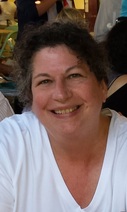A Congregation Without Walls

I was happy to note that one of the propositions that Rabbi Sid presented as a path by which American Jews may be able to turn our decline in numbers and spirit is in fact a guiding principle of my rabbinate; another is one that my chavurah is embracing; and a third, social justice, is starting to appear on some members’ radar. I’m hoping this calendar year will include a few breakthroughs for the congregation in terms of ruach, participation, and learning.
By the time I arrived at rabbinical school, thirty years older than I should have been, I had researched and written a book on Jewish-Gentile intermarriage, had been certified as a cantor by the Reform movement, had become a tutor for b’nai mitzvah, and had written dozens of articles and essays for local and national Jewish press. All of this happened after I turned 40. These experiences, plus my former career as a teacher in public schools, showed me that Jewish knowledge, gained through any number of methods and media, was necessary for non-Orthodox Judaism to thrive, especially in the Diaspora. I met legions of Jewish parents and grandparents who knew little about Jewish ritual, history, and philosophy other than what they’d grown up with, let alone Jewish texts. These Jews had no idea how to gain more Jewish knowledge and pass it on to the next generation. To my chagrin, they were very comfortable with what they didn’t know; it is the predominant mindset among my congregants. And we, of course, experience the phenomenon of childhood Jewish learning being given no more priority than soccer or cello.
My mantra became, “The more you know about Judaism, the more Jewish you’ll feel.” Long before I became a rabbi, I was insisting on my b’nai mitzvah students going well past rote learning to a real understanding of what they were chanting/davening and of what it meant to become a bar/bat mitzvah. Since being ordained and moving to a part of the United States that has a significant number of Jews but is somewhat isolated and underserved in terms of Jewish learning, I’ve led ongoing and one-off educational programs, including in-depth Torah study, and have exhorted countless over-50s to become knowledgeable grandparents. I’m applying for a grant to present a variation of Reform’s “A Taste of Judaism” on the Reconstructionist template of belonging, behaving, and believing. And I’m planning another series of text-study classes. My work as a rabbi will be completed when every American Jew has a JPS Tanakh in the house — which is to say, never.
My chavurah does better in terms of community as described in Jewish Megatrends. For one thing, it’s a “congregation without walls,” meeting in living rooms and rented or borrowed space, and it bills itself as such, which in fact is intriguing to many Jews who hear about it. The chavurah has a book club, sponsors social events and is learning how to be cohesive without being cliquish. We determined that events featuring cooking and eating probably should be a staple of our programming. The social justice component right now is limited to a few random passes at collecting nonperishable food, but there are a couple of congregants who are interested in going deeper into social justice advocacy and I hope to develop that aspect of our communal life in the coming years.
Demonstrating the link between Jewish engagement and sacred purpose is a tougher sell. It was actually easier when I was just singing. I began studying for the cantorate after a few people at our Los Angeles temple, where I was a frequent lay service leader, said to me, “When you sing, I feel closer to God.” I say this not to brag — it was always a surprise to me that I could do that — but to show how important connection to God is for many Jews. I would love for my congregants to explore different God-concepts and, in the process, their own souls.
If there is anything outside of the four propositions that informs my rabbinate, it is probably my goal of making Jews. I do work with converts and encourage conversion to Judaism — that’s a door that should be flung wide open. But making Jews also means convincing Jewish seniors to foot the bill for their grandchildren’s attendance at Jewish summer camp; urging men to have a second bar mitzvah that means more than the one they had at thirteen; teaching biblical Hebrew to adults; inviting folks to sit at a shabbat table every month.
____________
Rabbi Cantor Ellen Jaffe-Gill is a former schoolteacher, a graduate of Reconstructionist Rabbinical College, and the author of three books. At present, she is spiritual leader of Tidewater Chavurah, a small ”congregation without walls” in Virginia Beach, VA.

